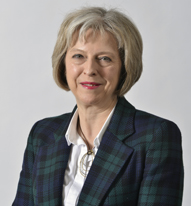Moves to substitute volunteers for fully trained police officers are ill-thought out and will not allow the police to best serve the public, the rank and file police body has claimed.
The Home Office has announced reforms to change the powers and roles of police staff and volunteers – that is, special constables. For the first time a volunteer could be given powers without becoming a Special Constable. The Government as part of the Policing and Crime Bill will also set out the core list of powers only available to a police constable. The Home Office points to a trial by Hampshire and Gloucestershire forces whereby volunteers with digital skills can support police digital investigations by providing technical expertise.
Steve White, chairman of the Police Federation of England and Wales, said: “We and our members understand the need for further police reform. However, the British public deserves and expects a properly resourced, professional and fully accountable police service to keep them safe in these dangerous times.
“We have seen no convincing arguments on the need to provide powers above or beyond those that already exist to police staff and volunteers.
“Having recently had the Government say ‘the police protect us and we are going to protect the police’, which clearly infers a need for greater resources, we appear to now be looking at a situation where they want to provide these resources on the cheap.
“Special constables and a significant army of volunteers up and down the country do sterling work, but they should not be a replacement for a sworn-in professional officers.”
Home Secretary Theresa May, pictured, said: “Police officers across the country carry out a wide range of duties, keeping the public safe and ensuring justice for the most vulnerable members of society. We value the essential role they play, but they cannot do this on their own. We want to help forces to create a more flexible workforce, bring in new skills and free up officers’ time to focus on the jobs only they can carry out.
“At the same time, we want to encourage those with skills in particular demand, such as those with specialist IT or accountancy skills, to work alongside police officers to investigate cyber or financial crime, and help officers and staff fight crime more widely. This Government is committed to finishing the job of police reform and the upcoming Policing and Crime Bill will help to do just that.”
And at the National Police Chiefs’ Council (NPCC) the Lead for Citizens in Policing, Chief Constable Dave Jones said: “The new approach to designating police powers will help the police service be more flexible when it comes to attracting and deploying volunteers with valuable skills, especially in situations where the full powers of a constable are not necessary. The onus on chief constables is to use the powers wisely, ensure they fit the needs of local policing and provide appropriate training so that they help us keep our communities safe.
“A new strategy for citizens in policing is being developed; as part of this we are seeking the views of all volunteers across the police forces of the UK, looking at their roles and experience in the past and planning for the future. The new powers will form part of this strategy and give us more opportunities to harness the great appetite for volunteering in the UK.”
Last year the Government ran a consultation on the way chief police officers designate powers and roles on police staff and volunteers. Visit https://www.gov.uk/government/consultations/reforming-the-powers-of-police-staff-and-volunteers.









